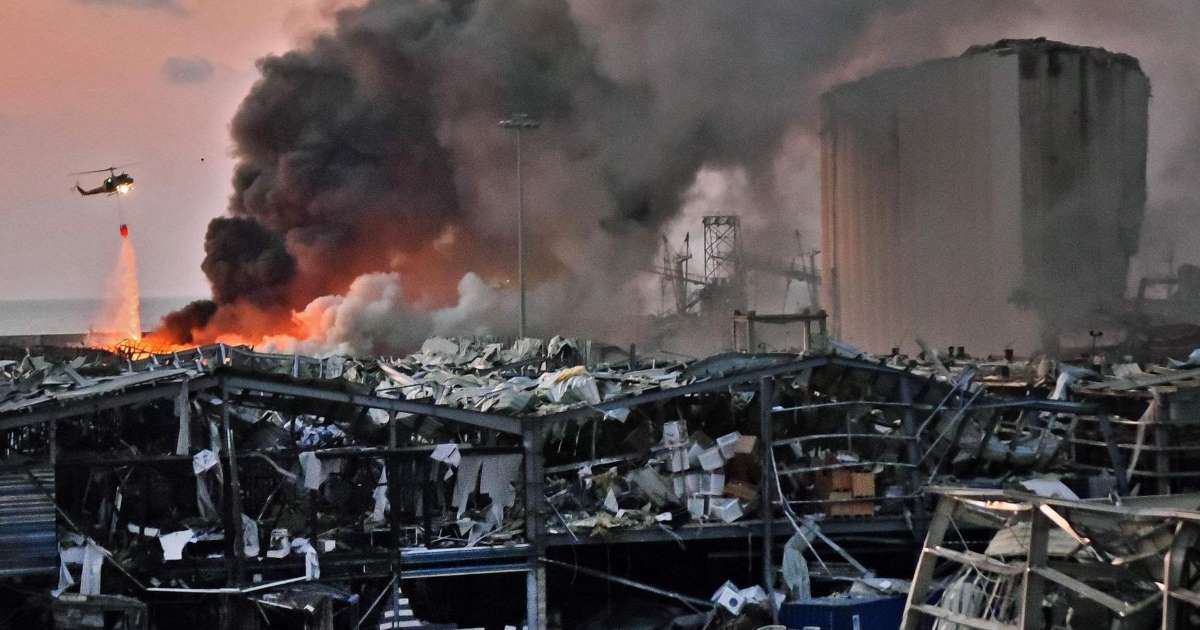© Str
The huge explosion in Beirut could lead to a shortage of bread in the next few days, as the explosion also completely destroyed the grain silos and at least 15,000 tonnes of wheat in the port. Lebanese President Michel Aoun does not want an international investigation into the Beirut explosion.
Both world leaders and Lebanese citizens have called for an international investigation independent of the massive explosion on Tuesday. The president said Friday that demands like this are meant to obscure the truth.
At least 154 people have been killed and more than 5,000 injured in Tuesday’s blast. The blast is said to have been caused by ammonium nitrate stored in the port.
Grain silos were lost
In any case, Lebanon’s food supply is almost entirely dependent on imported food, with an estimated 85% of food being imported.
The loss of grain silos knows hard times for Lebanese bakeries and, of course, also for consumers, whose purchasing power is otherwise quite low as a result of hyperinflation and unemployment.
– We were already in trouble because there was little wheat and flour. The mills did not produce wheat and, on the other hand, often did not even have fuel to grind grain, says Ghassan Bou Habib, who represents the country’s bakery industry.
“We sold all the bread”
The day after the explosion, hundreds of people lined up at the Al-Kaboushieh bakery in the Hamra district of Beirut to hoard bread.
– We sold everything. Everyone bought five bags instead of one because there was no information because they get bread again. Bread is the only way for the poor to fill their stomachs. We can’t afford to sit down to eat steaks, said Hayder Mussawi, who works at the bakery.
Authorities have tried to calm the bread hysteria by saying there are still stocks of wheat for at least a month, and new wheat ships are coming this week to Lebanon’s two other ports in Tripoli and Sidon.
However, according to Moussa Khoury, who was in charge of grain stocks in 2014-2017, this is not enough.
– There is no one like the port of Beirut: cargo ships were unloaded from wheat cargo around the clock, Khoury said. The World Food Program (WFP) said on Friday that it would send thousands of food aid packages to families in Beirut.
WFP also plans to import flour and grain. Many organizations and states have said they are sending food aid to Beirut.
